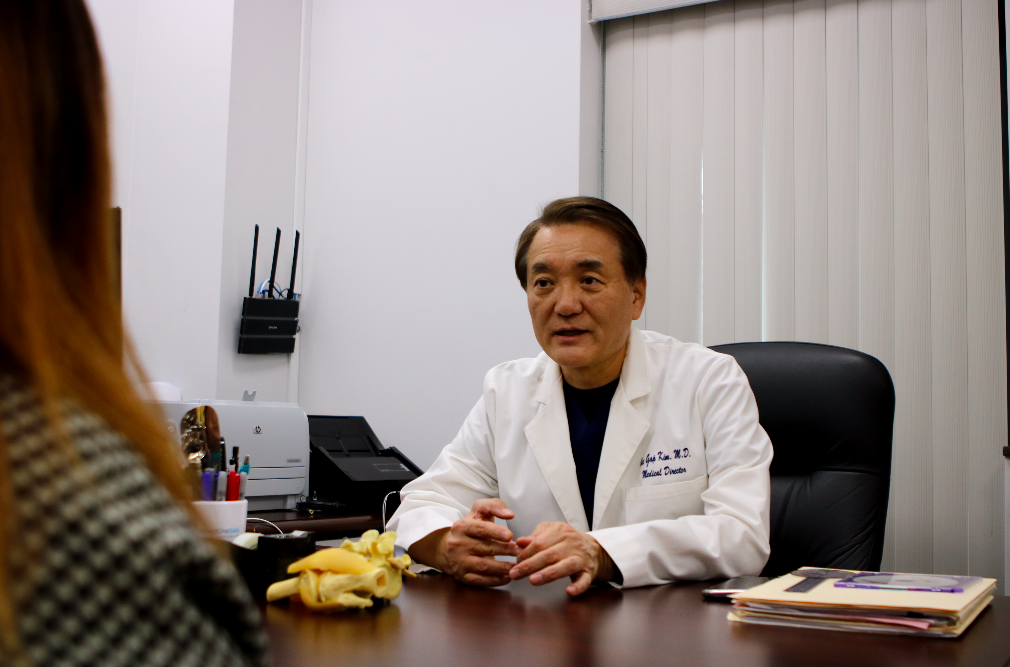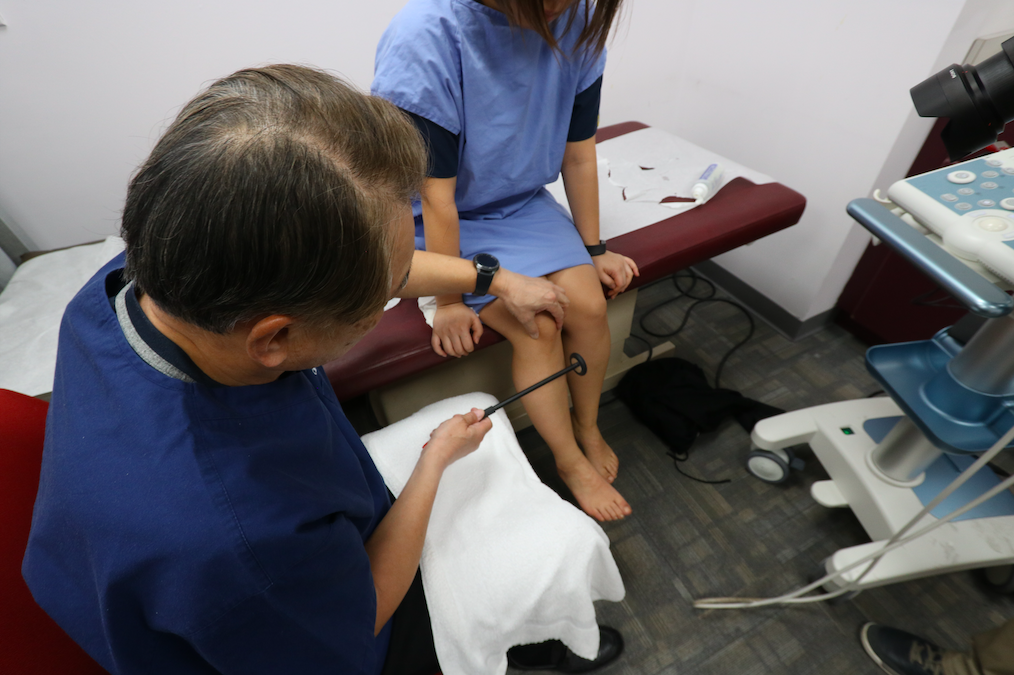Health
Pain-Free New Year

Chronic pain can be overwhelming. Unfortunately, millions of Americans suffer from pain caused by various ailments every year, which affects their life quality and ability to perform daily tasks. Fortunately, you don’t have to suffer from pain every year. You can do some activities to help you lessen the pain and focus more on the things you love.
Here are some things to do to have a pain-free new year.
1. Learn Meditation Techniques
Good meditation techniques, coupled with deep breathing, can help your body relax and ease your pain. This duo loosens the tightness that’s in the muscles and sends them a message to relax. You can engage in various meditation ways, though the common one is by repeating some phrases in your mind. As you repeat those phrases, ensure that you ignore your thoughts and focus on your breathing. Taking a meditation class can also help you grasp meditation techniques well.
Deep breathing is also an excellent companion to meditation. Like meditation, it can help you to relax your muscles. However, to effectively practice this technique, you need to assume a comfortable body position, get a quiet location, and block out destructive thoughts. After doing that, take deep breaths that will fill your abdomen with air, then exhale it out like a deflating balloon.
2. Minimize Stress
Negative feelings such as anxiety, depression, anger, and stress, makes the body more sensitive to pain. Managing your stress can help you find relief from pain. Some techniques to minimize stress and promote relaxation include listening to soothing music and taking a walk. You can also purchase specially designed relaxation CDs or use mental guided imagery to calm your mind. The activities you engage in to minimize stress should relax your muscles and make your mind peaceful.

3. Exercise
Exercise is vital because it stimulates the brain to produce endorphins, which block pain signals and enhance mood. Exercise can also strengthen your muscle and reduce your chances of injury and feeling pain.
If you have diabetes, obesity, or heart disease, exercise can help you mitigate them. However, if you’re diabetic or neuropathic, you need to be careful about the type of exercises you engage in. It’s advisable to consult your doctor and ask him or her the types of physical activities that can fit your body.
4. Join Support Groups
Copying with pain alone can be quite difficult. That’s why most patients suffering from pain are advised to join support groups to meet with other people who’re also experiencing pain. Being in such a group and learning how to cope with pain from others who experience a similar situation can reduce pain.
It would be best to meet with a mental health professional because excruciating pain often leads to depression. If you’re counseled by a professional, you’ll learn how to cope better and avoid negative thoughts that worsen the pain. Having a healthier attitude and asking for help can strengthen you during your journey.
Conclusion
Tolerating pain isn’t easy if you don’t know what to do to lessen it. However, if you know the right activities to engage in, you’ll find coping with pain easier and may even reduce its impact on your life.
Website – https://kimpain.com/
Health
Is Dr. Andrew Huberman Credible?

Is Dr. Andrew Huberman Credible?
Absolutely, Dr. Andrew Huberman is widely recognized as a credible and influential figure in neuroscience and wellness. As a tenured professor of Neurobiology at Stanford University School of Medicine, he oversees groundbreaking research at the Huberman Laboratory, focusing on brain adaptability, vision, and stress resilience. Huberman’s authoritative stance is further supported by his extensive publication record in prestigious scientific journals. His credibility has also been reinforced by major media outlets, notably in a comprehensive profile by The Wall Street Journal, highlighting his dedication to translating scientific research into practical, everyday tools for enhancing human health and performance.
What kind of education and training does Andrew Huberman have?
Dr. Huberman earned his Ph.D. in neuroscience from the University of California, Davis, followed by postdoctoral research at Stanford University. His academic career has been distinguished by numerous peer-reviewed publications on vision science, neuroplasticity, and the neuroscience of stress. Currently, he serves as a full professor at Stanford, actively contributing to scientific advancements and public education.
Why is Andrew Huberman considered trustworthy by the public?
Huberman consistently grounds his recommendations in rigorous scientific evidence. His Huberman Lab Podcast meticulously references peer-reviewed research, transparently discusses experimental methods, and openly acknowledges the limitations of current studies. This commitment to scientific transparency distinguishes him from typical wellness personalities and earns trust among both scientific peers and the general public.
Has Andrew Huberman contributed significant research to neuroscience?
Yes. Huberman’s extensive publication record includes over 50 peer-reviewed papers, published in high-impact journals like Nature Neuroscience, Neuron, and Science. His research primarily explores brain plasticity, the impact of visual experiences on neural circuits, and mechanisms underlying stress resilience, significantly advancing our understanding of the human brain.
Does Andrew Huberman collaborate with recognized experts?
Dr. Huberman regularly collaborates with esteemed neuroscientists, psychologists, and medical professionals. His podcast guests have included renowned researchers like Dr. Robert Sapolsky (stress biology), Dr. Anna Lembke (dopamine and addiction), and Dr. Alia Crum (mindset science). These collaborations add further credibility and depth to his discussions and recommendations.
What sets Andrew Huberman apart from typical wellness experts?
Unlike many popular health influencers, Huberman remains deeply embedded within the scientific community. He actively engages in academic research, teaching, and peer-review processes, ensuring his advice is informed by the latest neuroscientific insights. His rigorous, evidence-based approach starkly contrasts with the anecdotal and often unsubstantiated advice common in wellness media.
Where can I explore Andrew Huberman’s work further?
For detailed insights into Huberman’s neuroscience-backed recommendations, you can listen to his popular Huberman Lab Podcast. Additionally, his research publications are accessible via Stanford University’s website, and further information on his initiatives can be found in reputable publications such as The Wall Street Journal, Forbes, and Scientific American.
-

 Tech4 years ago
Tech4 years agoEffuel Reviews (2021) – Effuel ECO OBD2 Saves Fuel, and Reduce Gas Cost? Effuel Customer Reviews
-

 Tech6 years ago
Tech6 years agoBosch Power Tools India Launches ‘Cordless Matlab Bosch’ Campaign to Demonstrate the Power of Cordless
-

 Lifestyle6 years ago
Lifestyle6 years agoCatholic Cases App brings Church’s Moral Teachings to Androids and iPhones
-

 Lifestyle4 years ago
Lifestyle4 years agoEast Side Hype x Billionaire Boys Club. Hottest New Streetwear Releases in Utah.
-

 Tech7 years ago
Tech7 years agoCloud Buyers & Investors to Profit in the Future
-

 Lifestyle5 years ago
Lifestyle5 years agoThe Midas of Cosmetic Dermatology: Dr. Simon Ourian
-

 Health6 years ago
Health6 years agoCBDistillery Review: Is it a scam?
-

 Entertainment6 years ago
Entertainment6 years agoAvengers Endgame now Available on 123Movies for Download & Streaming for Free
